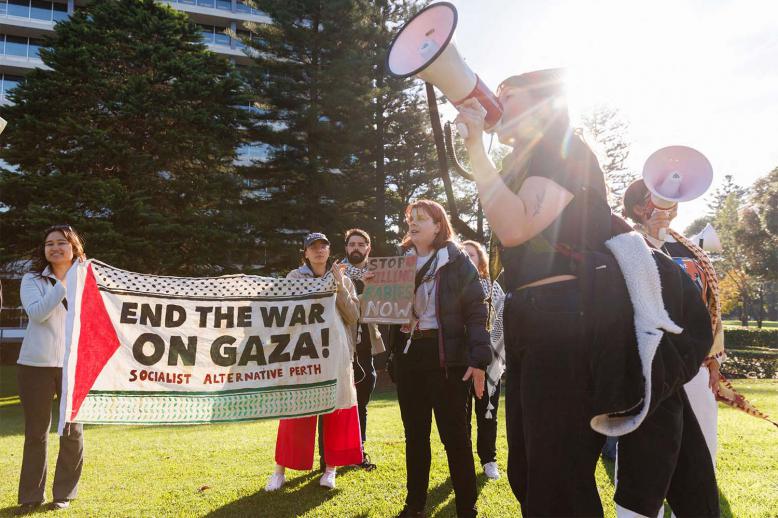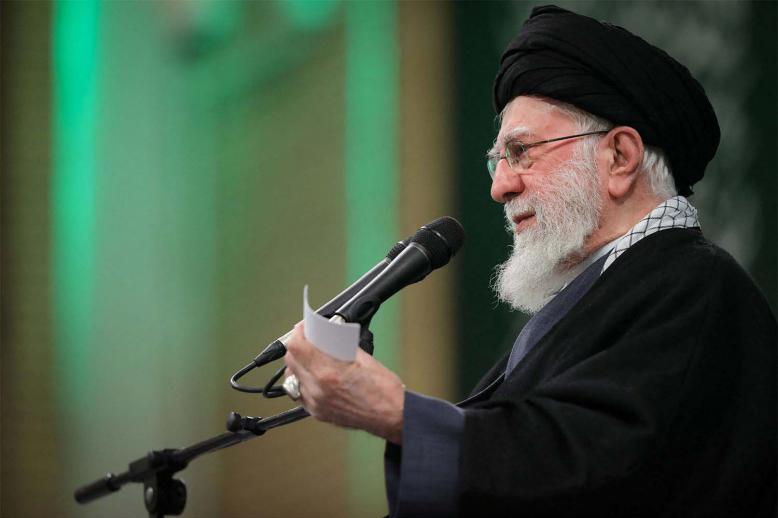Fidaa Itani and Lebanon’s battle for free speech
Journalist Fidaa Itani was sentenced in absentia to four months in prison and fined 10 million Lebanese pounds ($6,550) because of a Facebook post criticising Lebanese Minister of Foreign Affairs Gebran Bassil.
Itani had called out Bassil over his alleged racist policies towards Lebanon’s Syrian refugees. Bassil’s response was draconian and marked a further darkening of the skies over Lebanon.
That Itani was the subject of official ire is hardly new. The journalist’s investigative reports have uncovered numerous possible cases of corruption in Lebanon and implicated Bassil and other members of the ruling establishment. Itani was detained and questioned in July 2017 after he accused Lebanese Army intelligence of torturing and killing refugees under interrogation.
Bassil, the son-in-law of Lebanese President Michel Aoun leads the Free Patriotic Movement, which supports Hezbollah in its mission to return Lebanon’s 1.5 million, predominantly Sunni, refugees to the supposed security of Syrian President Bashar Assad.
Bassil has encountered much opposition in this mission. He ordered a freeze on the renewal of residency permits for the staff of the UN refugee agency, accusing it of intimidating refugees from returning by asking them about compulsory military service, security conditions and whether they have a place to live. The United Nations strongly denied the allegation.
Speaking to The Arab Weekly from London, where he is a political refugee, Itani said this crackdown on free speech was the government’s attempt to distract attention from the administration’s failure and corruption.
Itani said the administration began an offensive against two main groups, including “the international community, which it blackmails for funds to maintain its feeble economy, like [it] did at the recent Cedre conference, while at the same time accusing them of being responsible for Lebanon’s difficult state of affairs.”
The other group is made up of “normal people, particularly secular individuals who do not subscribe to any of the struggling sects; these voices of opposition (journalists and activists) to the status quo are swiftly suppressed and their trials expedited to ultimately silence them,” he said.
Itani said the prospect of free speech and civil liberties in Lebanon are worse than during the days of the Syrian occupation. “The recent indictment issued against me includes charges of defaming President Aoun,” Itani said.
However, Itani said, anyone participating in the elite’s sectarian rivalries “can go as far as to promote violence against others, as long as they are demanding a bigger piece of the pie.” Conversely, “anyone who, like myself, is exposing corruption and defending the Syrian refugees is treated as a sinner,” he added.
This violation of the freedom of the press is not restricted to Itani but has become a norm under Aoun, a former general at pains to present himself as a patriarchal figure, exempt from any kind of criticism. However, reports issued by the Samir Kassir Foundation, a group that monitors violations of freedom of the press, stated that, since his election in November 2017, Aoun has allowed more than 20 documented cases against civil society figures to proceed, including the detention and trial of journalists and political activists.
One of the casualties of the government’s unflinching line on silencing public criticism is journalist Michel Kanbour, the publisher of the news website Lebanon Debate. He was sentenced to six months in jail and fined 10 million Lebanese pounds in a defamation lawsuit filed by Customs Department Director-General Badri Daher. The jail sentence was suspended.
Kanbour said Itani’s indictment speaks to the heart of the freedom of the press and marks a clear departure from Lebanon’s legacy of liberalism.
“Nothing justifies sending a journalist to jail regardless of what position they take, as it sends a clear message to both journalists and activists that anyone who dares cross the red line of exposing corruption or objects to any aspect to bad governance will end up in jail like Itani and myself,” he said.
Above all, Kanbour warned, such autocratic measures introduced a dangerous element to Lebanon’s political culture, “which is self-censorship which drives people to think twice before daring to write or act.”
Itani is not merely a Lebanese journalist who dared to stand up to a degenerate political class that takes its citizens for granted, he is a vivid reminder that the Lebanese can no longer take the moral high ground and claim that their so-called nation is a true democracy.
Makram Rabah is a lecturer at the American University of Beirut, Department of History. He is the author of A Campus at War: Student Politics at the American University of Beirut, 1967-1975.
This article was originally published in The Arab Weekly.







